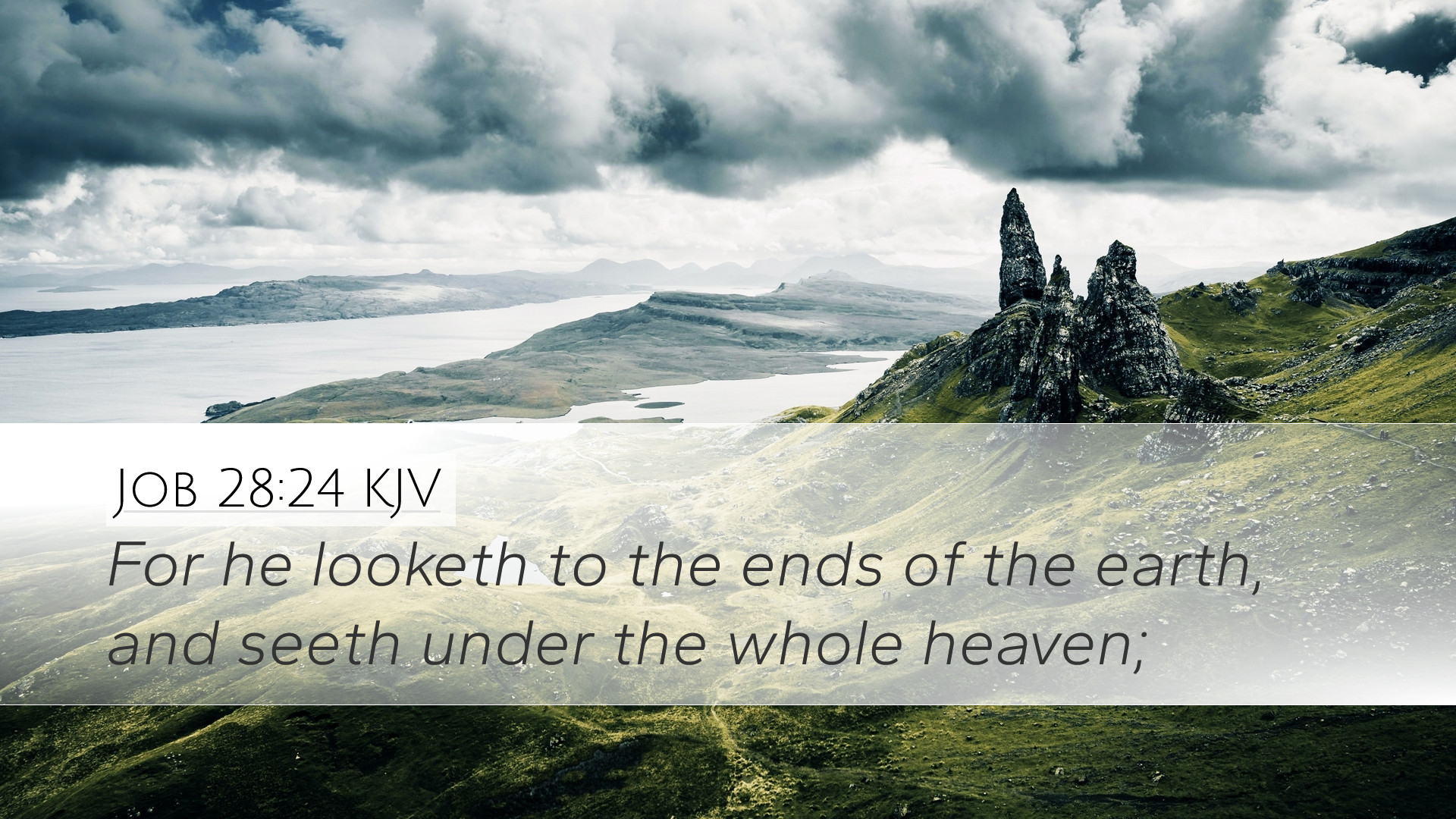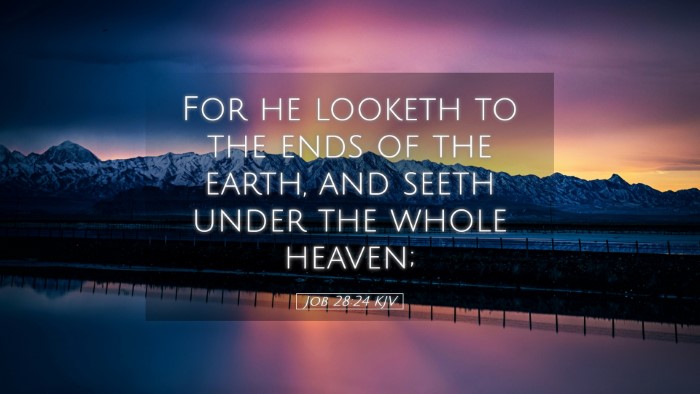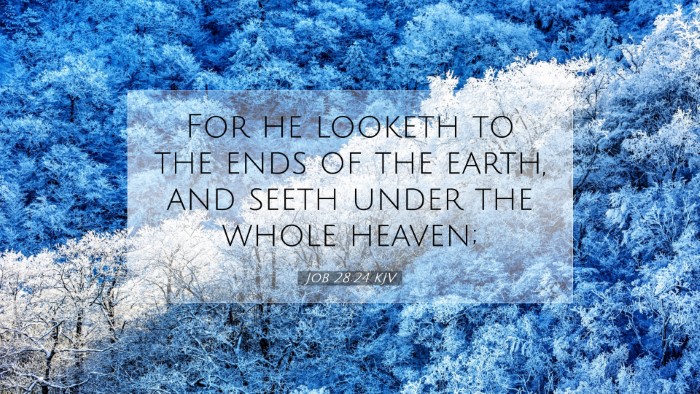Old Testament
Genesis Exodus Leviticus Numbers Deuteronomy Joshua Judges Ruth 1 Samuel 2 Samuel 1 Kings 2 Kings 1 Chronicles 2 Chronicles Ezra Nehemiah Esther Job Psalms Proverbs Ecclesiastes Song of Solomon Isaiah Jeremiah Lamentations Ezekiel Daniel Hosea Joel Amos Obadiah Jonah Micah Nahum Habakkuk Zephaniah Haggai Zechariah MalachiJob 28:24
Job 28:24 KJV
For he looketh to the ends of the earth, and seeth under the whole heaven;
Job 28:24 Bible Commentary
Commentary on Job 28:24
“For he looketh to the ends of the earth, and seeth under the whole heaven.”
Introduction
This verse arises in the context of Job’s discourse on the nature of wisdom and the reverence for God. Job illustrates the vastness of God's knowledge and power compared to the limitations of human understanding. The reflections of various biblical scholars and commentators shine light on this text and deepen its theological implications.
Contextual Background
Job, in Chapter 28, speaks of the quest for wisdom, highlighting humanity's persistent search for understanding and knowledge, especially amidst suffering. This particular verse serves as a pivotal reminder that while humans may seek wisdom through various means, God's omniscience far surpasses any earthly pursuit.
Insights from Commentary
-
Matthew Henry's Commentary:
Henry emphasizes that God's omniscience encompasses all things; He observes both the earth’s farthest reaches and the depths of human hearts. This knowledge is not merely observational but deeply relational. God’s understanding is such that He perceives the needs, struggles, and aspirations of every individual, thus reminding readers of their smallness in comparison to divine majesty.
-
Albert Barnes' Commentary:
Barnes explains that the phrase “looketh to the ends of the earth” signifies God's infinite power and omnipresence. He draws attention to how this perspective should invoke a sense of humility among humans. Further, Barnes points out that while mankind struggles to grasp wisdom, God’s view encompasses everything, indicating that true knowledge begins with reverence for Him.
-
Adam Clarke's Commentary:
Clarke interprets this verse with a focus on the wisdom of God that transcends human comprehension. He notes the metaphorical nature of 'the ends of the earth' to depict the idea that God is not limited by time or space. Furthermore, he reflects on the spiritual dimension, asserting that God bestows wisdom and understanding to those who earnestly seek Him, thus encouraging believers to pursue spiritual wisdom above all.
Theological Implications
This verse, along with its commentaries, imparts vital theological insights:
-
God's Sovereignty:
The affirmations about God's omniscience underscore His sovereignty over creation. His ability to look “to the ends of the earth” implies that nothing escapes His notice or authority.
-
Human Limitations:
Job’s assertion reinforces the limitations inherent in human wisdom and understanding. The reminder that we are 'under heaven' is also a humbling perspective that fosters a posture of dependence upon God for wisdom and guidance.
-
Wisdom’s Origin:
This verse signifies that true wisdom is fundamentally rooted in a relationship with God. The implication is clear: any pursuit of wisdom must acknowledge God's supreme intellect and direction; wisdom begins with fearing the Lord (Proverbs 1:7).
Practical Applications
The observations from Job 28:24 offer several practical applications for believers:
-
Acknowledge God's Greatness:
Believers are encouraged to recognize and reflect on the greatness of God in their lives, leading to a deeper worship experience and reliance on His plans.
-
Seek Divine Wisdom:
Instead of merely relying on human intellect, individuals should cultivate a habit of prayer and meditation to seek God’s wisdom in their decisions and in navigating life's complexities.
-
Embrace Humility:
This verse calls for believers to approach their quest for knowledge with humility. Understanding that God knows all should inspire a humble posture in seeking truth.
Conclusion
Job 28:24 serves as a profound reminder of the distinction between divine wisdom and human understanding. The insights gleaned from public domain commentaries by Henry, Barnes, and Clarke illuminate the text's theological and practical significance for both scholars and everyday believers. Engaging with the text reveals the richness of God’s knowledge and invites an earnest pursuit of wisdom through a relationship with Him.


